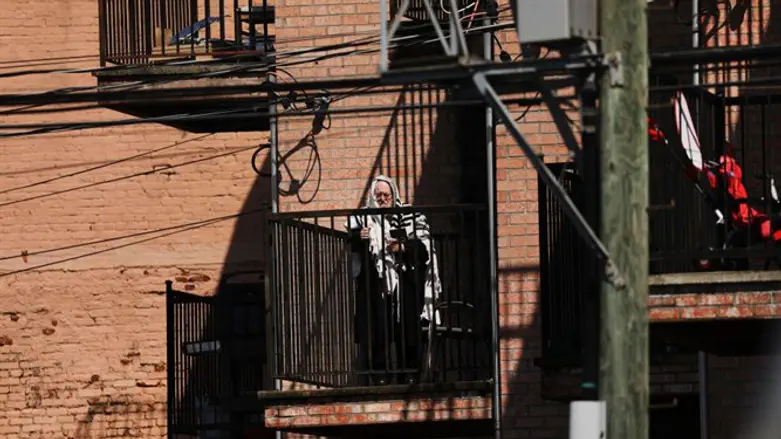
Arutz Sheva spoke with Rabbi Shlomo Sobol, who heads a community of English-speaking immigrants in the central Israeli city of Modi’in, about the relationship between Israeli Jews and Jews in the Diaspora.
Rabbi Sobol is the head of the Barkai organization that trains rabbis to lead communities in Israel - critical for immigrants who were accustomed to a strong communal structure in their countries of origin and often find that missing in Israel.
“Every Jew knows that the center of his life, his whole focus as a Jew, is on the Land of Israel,” Rabbi Sobol says.
“Jews living in the United States don’t need to be reminded to come visit here, to donate to Israeli charities and so forth. They offer their support to the State of Israel through thick and thin – but right now, when it’s the Jewish communities abroad who are going through a hard time, they want to feel that we, the Jews of Israel, are feeling with them. We need solidarity,” he stresses. “That’s what’s so important right now.”
Rabbi Sobol stresses that it’s not what we can do for American Jews, but more that we should endeavor to give them the sense that we’re there for them. “That’s a really big thing. Of course on a national level, the government can step in when that’s what’s needed, but what I’m really talking about is on an individual level. We can say a chapter of Psalms for them when they’re going through stuff, like now. We can push initiatives like twinning communities, and we can even work on joint projects from time to time. It’s just so important for them to have the feeling that it’s not just a one-way relationship.”
“And there’s another thing,” Rabbi Sobol adds. “We’re always talking about promoting aliyah (immigration to Israel -ed.), and of course that’s really important too. All the same, there has to be more awareness of what that means on a practical level. Making aliyah is hard! For sure immigrants get a bunch of benefits from the government when they move here; they get free ulpan and all that, but that doesn’t change the fact that a Jew, and especially a family, moving here from abroad goes through a really hard time. It’s a huge transition. In cultural terms, it’s another world here. Just to give one example – Israeli schools are run totally differently to those in the United States. And I could give you tens of examples of things that pose huge challenges to immigrants. When we talk about aliyah, we don’t have all that at the forefront of our minds, and that’s really something that needs to change.”
Rabbi Sobol gives a more specific example: “Imagine a new immigrant who comes to live here with his family. He sends his kids to Israeli schools, and he’s used to being able to help them with homework and so forth. Let’s say he’s even a math professor. But when his second-grader comes home with a math problem with the question written in Hebrew, he doesn’t understand the words! He can’t help his second-grader with homework. You can imagine how a father feels in such a situation. And I’m sure it’s something that most immigrant parents can really relate to.”
Are Israelis really so slow to appreciate the difficulties their American brothers experience when coming to live here?
“There’s often a certain perception that American Jews are all wealthy,” Rabbi Sobol says. “Of course that’s not true. And another thing is that not every immigrant finds a job easily here, or even at all. Just in general, acclimating to a new life in Israel is a huge challenge – from dealing with bureaucracy, which is kind of notorious, to understanding the different mentality here… We don’t want to keep seeing the same thing happening, where families come from the United States, try to make a go of it, and then move back because it was just too much. Instead of putting so much focus on getting American Jews to come here, we should be focusing on making it easier for them to stay.”
And that means? “Here in Modi’in, we have great communal structures – we have chessed (kindness, or aid) organizations, youth groups, cultural activities… We’re all there for each other like one big family. And that’s what we need, because most of us don’t have extended family around. People need to feel grounded, and they need to feel welcomed and understood. When that starts to happen more, we’ll reach that state of solidarity that we all so badly need.”